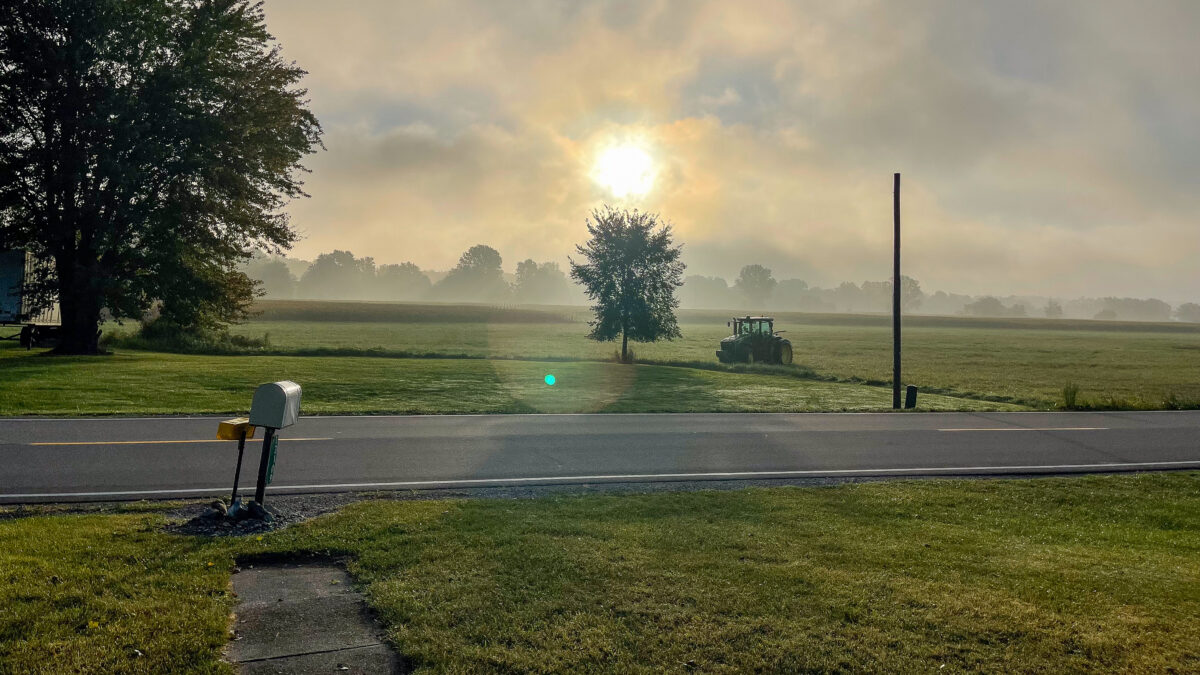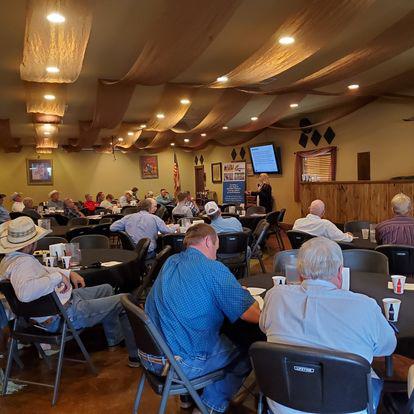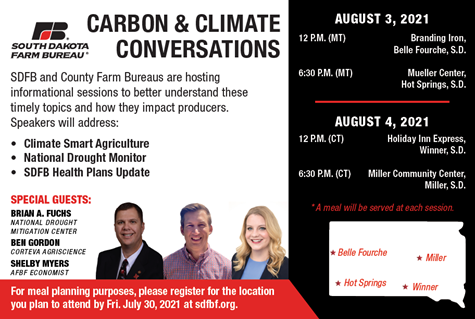South Dakota Farm Bureau Brings ‘Carbon & Climate Conversations’ to Members
TOPICS
SustainabilityErin Anthony
Director, Communications

photo credit: AFBF Photo, Morgan Walker
Erin Anthony
Director, Communications

To help farmers and ranchers across the state better understand the dynamics of carbon markets, South Dakota Farm Bureau partnered with 20 county Farm Bureaus for four regional meetings on the topic. “Carbon & Climate Conversations” featured AFBF economist Shelby Myers and Ben Gordon, portfolio leader of the ecosystems services portfolio at Corteva Agriscience. In addition, Brian Fuchs, associate geoscientist/ climatologist for the National Drought Mitigation Center at the University of Nebraska-Lincoln, spoke about the drought conditions much of the state was experiencing.
South Dakota Farm Bureau’s primary goal was to bring national carbon and climate-smart agriculture program experts to the state’s farmers and ranchers. AFBF’s Myers provided an unbiased overview of carbon programs, while Gordon presented on Corteva’s carbon initiative. In addition, the meetings helped those who attended become better informed about climate-smart agriculture overall, priming them for participation in climate and carbon impact policy discussions.
Meeting attendees were also very interested in Fuchs’ presentation, especially about how Drought Monitor readings affect USDA programs.

The four meetings were held over the course of two days, Aug. 3 and 4, 2021, with two meetings held per day and 89 farmers and ranchers in attendance in total. All of the meetings included Myers, Gordon and Fuchs and generated deep discussion and many questions for the panelists. The regional meeting locations were selected in areas where SDFB has not commonly hosted events and SDFB believed there was opportunity to attract new members to engage in policy discussions. In addition to delivering timely and relevant information, the goal was to demonstrate SDFB’s influence and ability to bring thought-leading speakers directly to producers’ local areas. The events did attract individuals who were not current members and a younger generation of farmers as well.
The timing of the meeting was intentional too; meeting organizers were looking to avoid planting and harvesting seasons, as well as winter weather. And the meetings were early enough in August that school activities hadn’t started yet.
South Dakota Farm Bureau promoted “Carbon & Climate Conversations” heavily via Facebook ads and posts, direct mail, and newspaper and radio ads. The organization also shared the meeting information on its website and several local newspapers ran articles about the meeting (either before or after).
Strategic Action Fund
South Dakota Farm Bureau’s “Carbon & Climate Conversations” were funded in part through a grant from the American Farm Bureau Federation’s Strategic Action Fund. Through the fund, state Farm Bureaus with fewer than 25,000 members were eligible to apply for funding of up to $5,000 for public policy-related projects.
Trending Topics
VIEW ALL